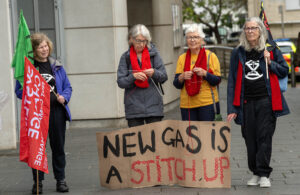Energy switching decisions could widen inequalities
Energy switching decisions could widen social inequalities, according to researchers at the University of Leeds.
The researchers spoke to over 2,000 customers who were each presented with five new business models and asked a series of questions about them, including their likelihood to sign up to them if they were available today.
The models included options such as longer 10-year contracts with energy efficiency measures, allowing for utilities to control some energy services in the home, making the switching decision automatic, and trading their own excess green electricity.
The study found that new types of energy contracts designed for a low carbon future could benefit all types of customer, however, they found that many people were unlikely to choose them because they were disengaged from the energy market, didn’t trust energy companies, or already feel satisfied with their current tariffs.
This means that consumers who already trust the energy market, with higher incomes and positive attitudes towards technology, are likely to do well out of contracts that help energy system decarbonisation.
However, consumers in lower-income and lower education groups may be too cautious to gain the benefits of early adoption, be too disinterested in switching supplier, or find the market too untrustworthy to engage with. This could lead to them defaulting to more expensive, less tailored, or even more risky contracts.
The findings suggest there is potential for further innovation in the energy market, but at the same time, the customer base may be more limited than is generally expected.
Principal investigator Dr Stephen Hall, from Leeds’ School of Earth and Environment, said: ‘These new energy contracts are really important for low-carbon energy systems, and are already appearing on price comparison sites.
‘Our work shows only some consumers find these new types of energy supply attractive, and others cannot access them because they rent their home or might not be able to afford cutting edge technologies like electric cars and home batteries. This means some consumers could get left behind because they cannot or will not engage with new tariffs.
‘The energy market tends to preference affluent and active consumers, while often exploiting inactive consumers who are usually in lower-income groups.
‘The findings of this research suggests that gap is likely to widen without intervention because smarter and more flexible tariffs worsen the divide between who benefits from the market, and who loses out.’
Photo Credit – Pixabay















